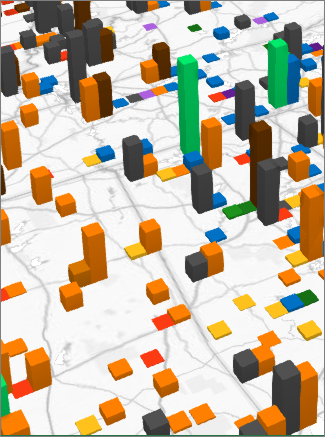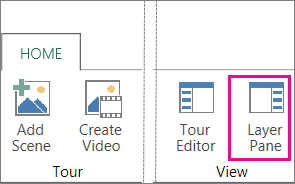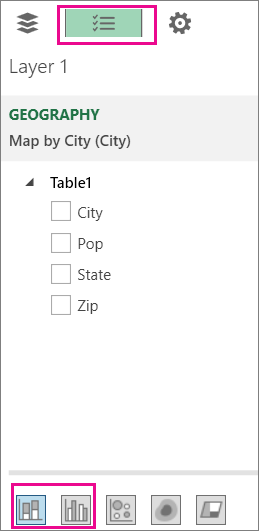Switch between stacked and clustered columns in a Power Map chart
When you open Power Map for a new set of data, it detects the geography in your data and plots a clustered column chart by default.


Switch between clustered and stacked columns
-
Click Home > Layer Pane.

-
On the Field List tab, click Stacked Column or Clustered Column.

Notes:
-
You can drag additional fields into the Height or Category boxes, or check the fields, and Power Map puts your field in the appropriate box.
-
If you drag a field only to the Category box and leave the Height box blank, Power Map automatically adds that same field to Height and draws a chart that represents the count of each category.
-
You can also change the shape of the columns.
-
More about stacked and clustered columns
Use stacked columns when you have multiple data series and you want to emphasize the total. For example, if you want to plot all the different kind of show tickets (day, evening, full price, discounted, member, nonmember) by zip code.
Use clustered columns to compare data across both categories and data series. For example if you have entries like strongly agree, agree, neutral, disagree, and strongly disagree, by customer segment.
No comments:
Post a Comment